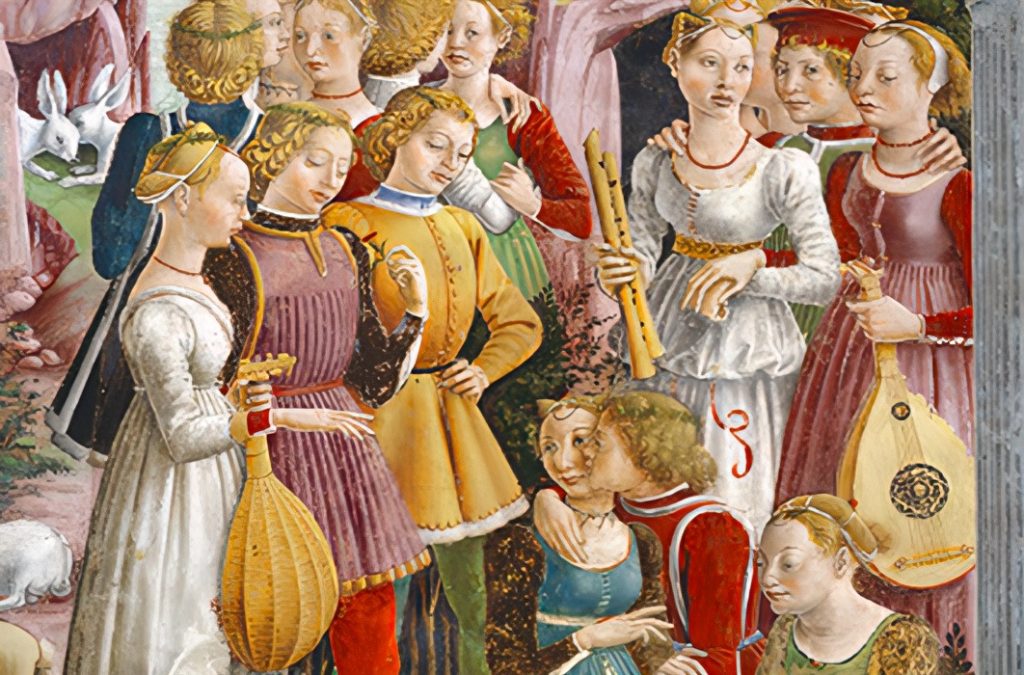
Sfuggire la peste! Boccaccio e il Decameron a Fiesole
Escape the Black Death with Boccaccio in Fiesole
Dante e Boccaccio: moralità e cultura
Dante and Boccaccio: morality and culture
Dante Alighieri, severo moralista medievale, ha unificato l’Italia attraverso il dialetto toscano, ma è Giovanni Boccaccio che ci ha fornito una profonda comprensione della cultura e delle pratiche medievali italiane.
Dante Alighieri, the stern medieval moralist, may have united Italy through the Tuscan dialect, but it was Giovanni Boccaccio who gave us great insight into medieval Italian culture and practices.

Il Decameron: uno specchio del medioevo
The Decameron: a mirror of the Middle Ages
Boccaccio è particolarmente noto per aver scritto il Decameron, completato nel 1353 subito dopo l’epidemia del 1348 che uccise tre quarti della popolazione di Firenze. Per una lettura interessante (e raccapricciante) sulla peste nera, clicca il link sotto.
Boccaccio is particularly noted for having written the Decameron. It was penned in 1353 just after the epidemic of 1348 killed three-quarters of the population in Florence. For a particularly interesting and gruesome read on the Black Death, click the link sotto..
Perché il titolo “Decameron”?
Why the Title “Decameron”?
Il titolo “Decameron” deriva dalla lingua greca e combina due parole per formare un termine che significa “dieci giorni”. Questo è il periodo di tempo in cui i personaggi della storia di Boccaccio narrano le loro storie, smascherando chierici ipocriti ed esplorando le nuove tensioni tra famiglie nobili e una classe mercantile emergente.
The title “Decameron” is taken from the Greek language, combining two words to form a term that means “ten days.” This is the time period in which the characters in Boccaccio’s story spin their tales, exposing hypocritical clerics and exploring new tensions between noble families and a newly emerging merchant class.
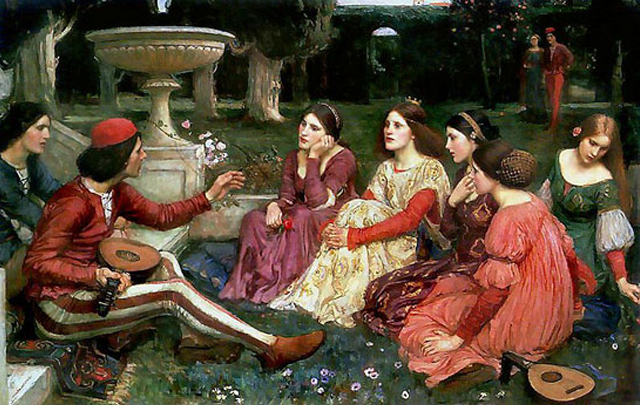
Fiesole: un rifugio dalla peste
Fiesole: a refuge from the plague
Per sfuggire alla peste, un gruppo di sette giovani donne e tre giovani uomini si rifugia in una villa isolata sulle colline di Fiesole, fuori Firenze. Per passare le giornate, ogni membro del gruppo racconta una storia basata su un tema comune per il giorno. Così, il gruppo intreccia racconti che spaziano dall’amore erotico e puro, alla tragedia e al successo, fino ai trucchi che uomini e donne giocano l’uno all’altro. Le storie sono argute e piene di scherzi pratici, ognuna una lezione di vita per ammonire o consigliare.
In order to escape the plague, a group of seven young women and three young men take refuge in a secluded villa outside Florence in the hills of Fiesole. To pass their days, each member of the group tells a story based on a common theme for the day. In this manner, the group spins tales ranging from erotic and pure love, tragedy and success, to the tricks that men and women play upon one another. The tales are witty and full of practical jokes, each a life lesson to admonish or advise.
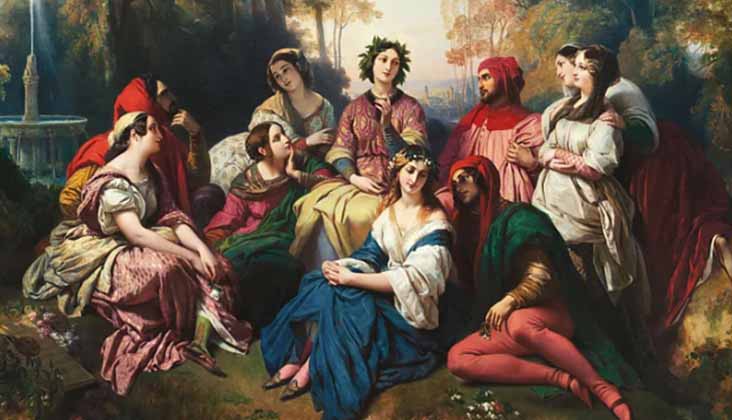
Una finestra su Firenze medievale
A window into medieval Florence
Il Decameron è stato scritto nel dialetto fiorentino comune. Attraverso l’uso di dialoghi realistici e uno stile narrativo innovativo, Boccaccio prende satiricamente in giro la società del tempo, dandoci una preziosa visione della vita durante un periodo di trasformazioni sociali. La sua opera rimane una finestra straordinaria sulla Firenze medievale e un monumento imponente della letteratura pre-rinascimentale.
The Decameron was written in the common Florentine dialect. Through his use of realistic dialogue and an unformulaic way of storytelling, Boccaccio satirically pokes fun at society, giving us a valuable insight into life during a time of social upheaval and transformation. His book remains a marvelous window into medieval Florence and a towering monument of pre-Renaissance literature.
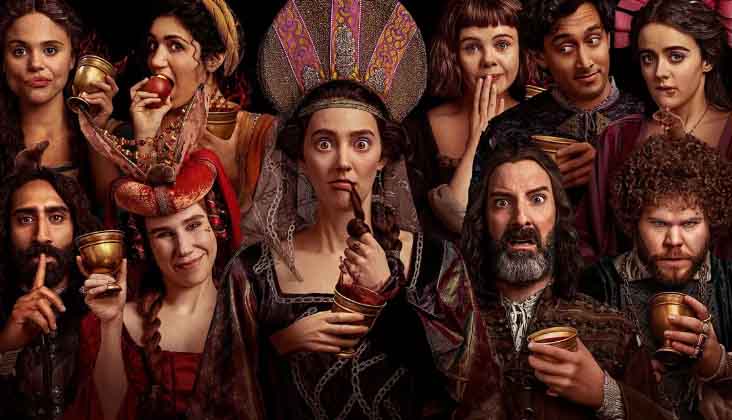
Ridere ai Tempi della Peste — 2024 Netflix Serie
Laughing in the Time of the Plague — 2024 Netflix Series
La serie Netflix The Decameron reinterpreta il capolavoro del XIV secolo di Giovanni Boccaccio come una commedia nera ambientata sullo sfondo cupo della peste nera. Nel 1348, un gruppo di nobili e i loro servitori si rifugiano in una villa isolata nella campagna toscana per sfuggire alla peste che devastava Firenze. Quello che inizia come un rifugio dalla morte si trasforma in un’esplorazione caotica e spesso esilarante dei desideri umani, delle dinamiche di potere e della sopravvivenza. Ogni personaggio mette in luce difetti e segreti unici, dando vita a un mix di umorismo licenzioso, intrighi e momenti toccanti.
The Netflix series The Decameron reimagines Giovanni Boccaccio’s 14th-century masterpiece as a dark comedy set against the grim backdrop of the Black Death. In 1348, a group of nobles and their servants retreat to a secluded villa in the Tuscan countryside to escape the plague ravaging Florence. What begins as a refuge from death transforms into a chaotic and often hilarious exploration of human desires, power dynamics, and survival. Each character brings unique flaws and secrets to light, resulting in a blend of bawdy humor, intrigue, and poignant moments.
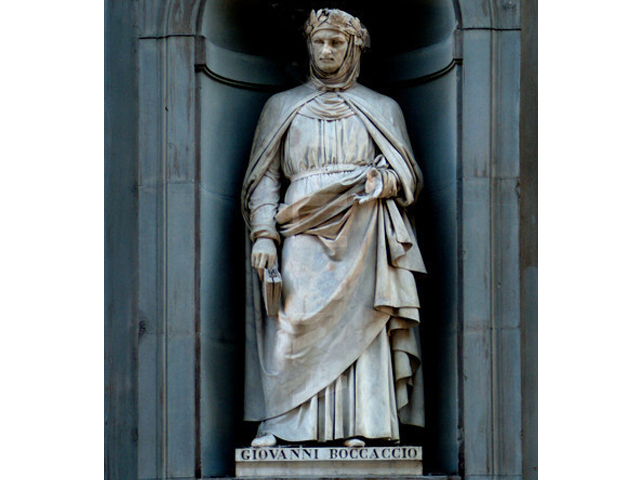
Boccaccio potrebbe avere sentimenti contrastanti riguardo a questa adattazione. Fu un pioniere nel mescolare l’umorismo con un’acuta critica sociale, e il tono irriverente della serie Netflix probabilmente riflette il suo spirito. Tuttavia, la reinterpretazione contemporanea, che si concentra fortemente sull’umorismo nero e sulle sensibilità moderne, potrebbe allontanarsi troppo dai temi sfumati e dai sottotoni morali del suo Decameron originale.
Boccaccio might have had mixed feelings about this adaptation. He was a pioneer of blending humor with sharp social commentary, and the Netflix series’ irreverent tone likely reflects his spirit. However, its contemporary reinterpretation, focusing heavily on dark humor and modern sensibilities, might stray too far from the nuanced themes and moral undertones of his original Decameron.
Detto ciò, Boccaccio amava prendersi gioco dell’ipocrisia sociale e mettere in evidenza la follia umana, quindi forse avrebbe sorriso di fronte all’audacia della serie, pur criticandone l’allontanamento dal suo stile narrativo sofisticato.
That said, Boccaccio loved poking fun at societal hypocrisy and exposing human folly, so he may have chuckled at the series’ audacity while critiquing its departure from his sophisticated storytelling style.
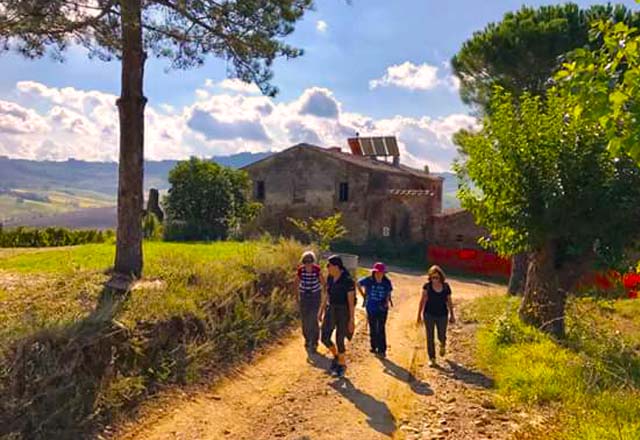

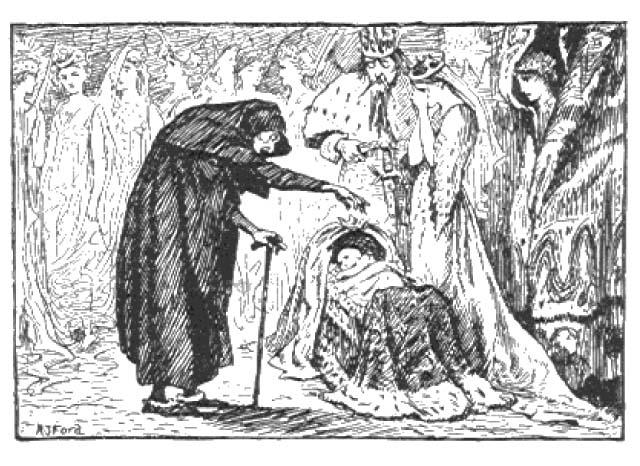

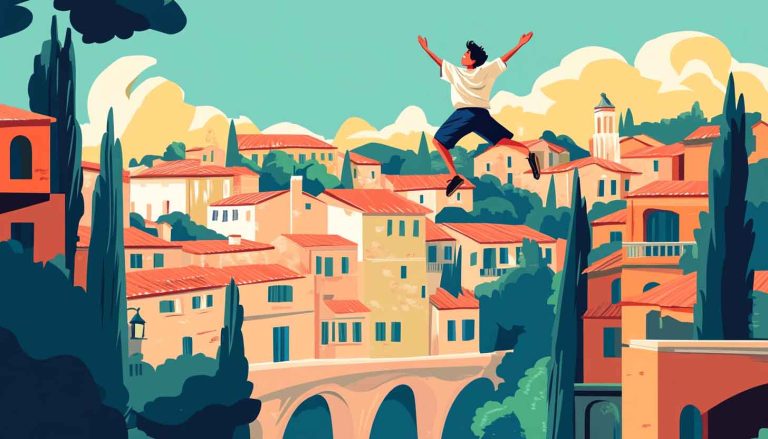
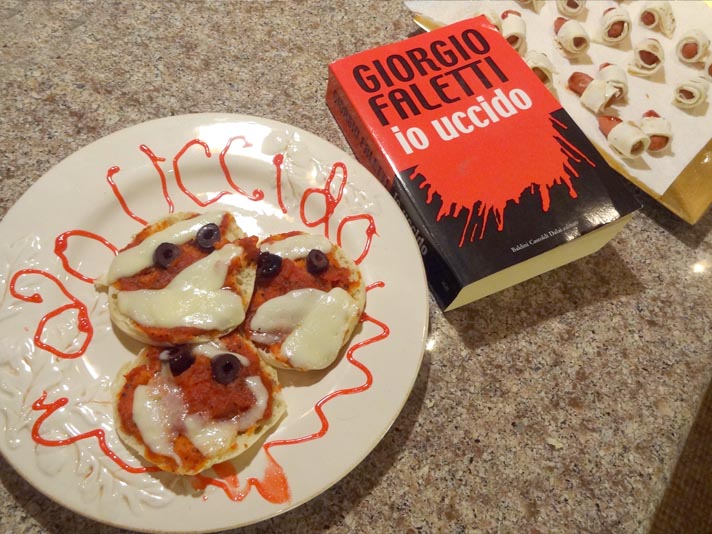





Grazie per la storia. Io amo la storia e “le storie” di Italia.
Grazie mille !!!! Interessante!